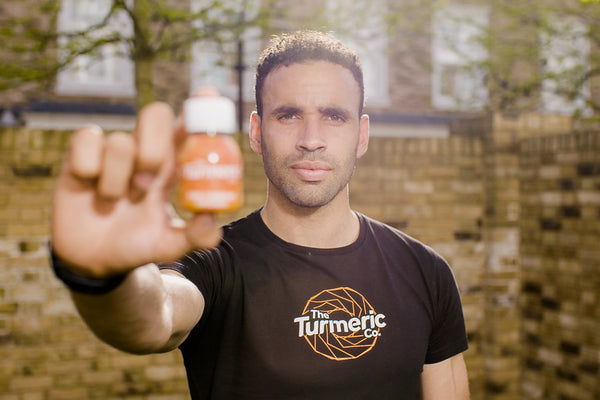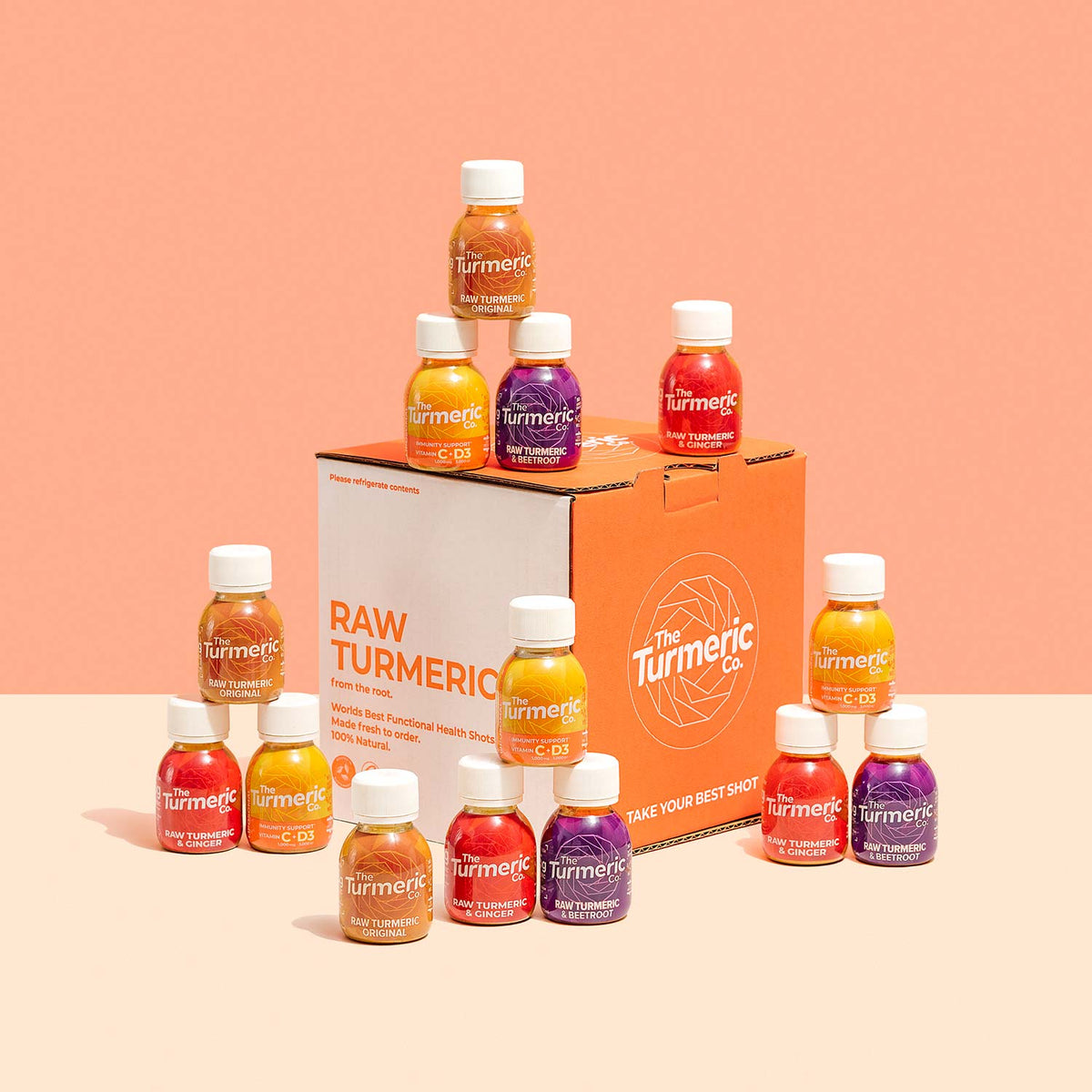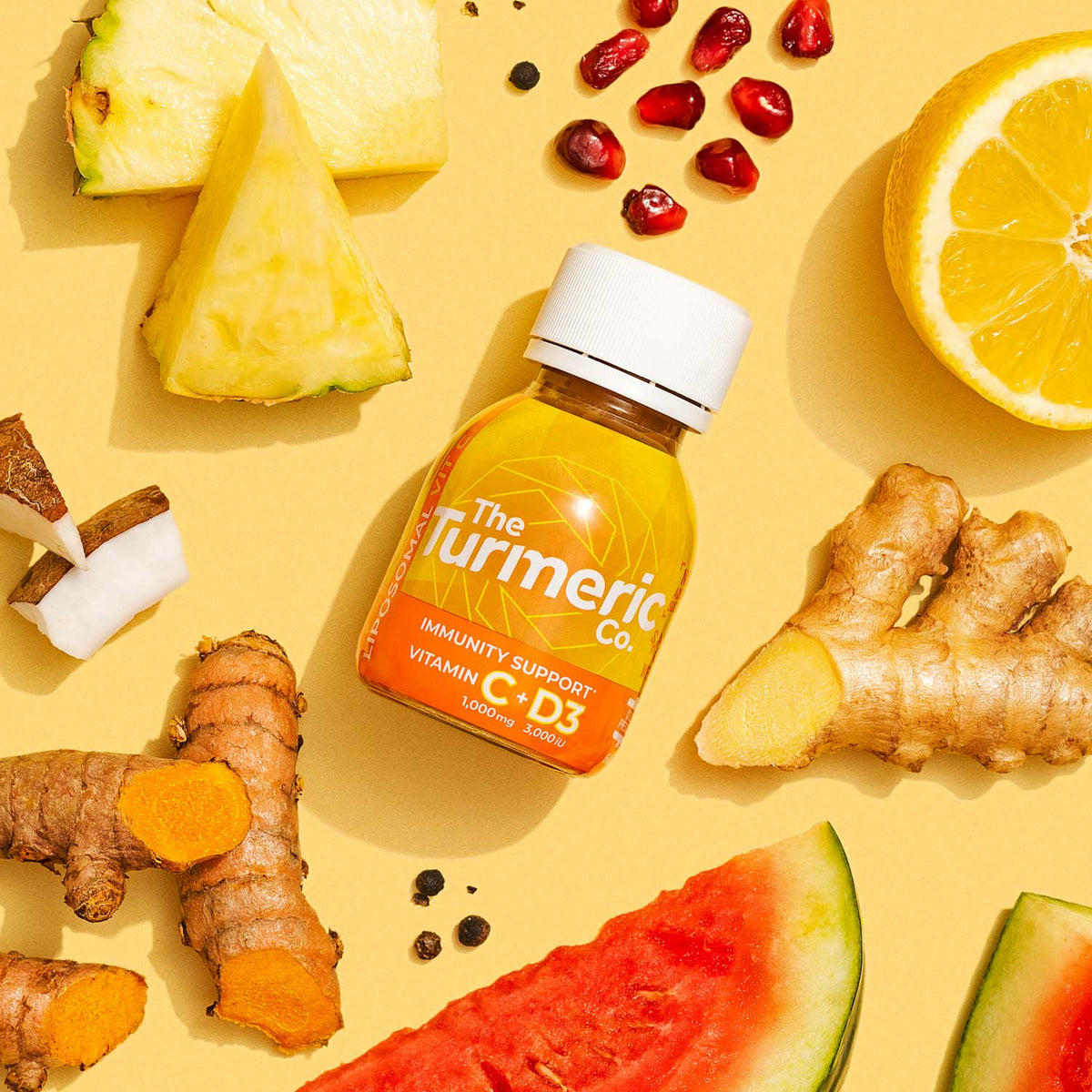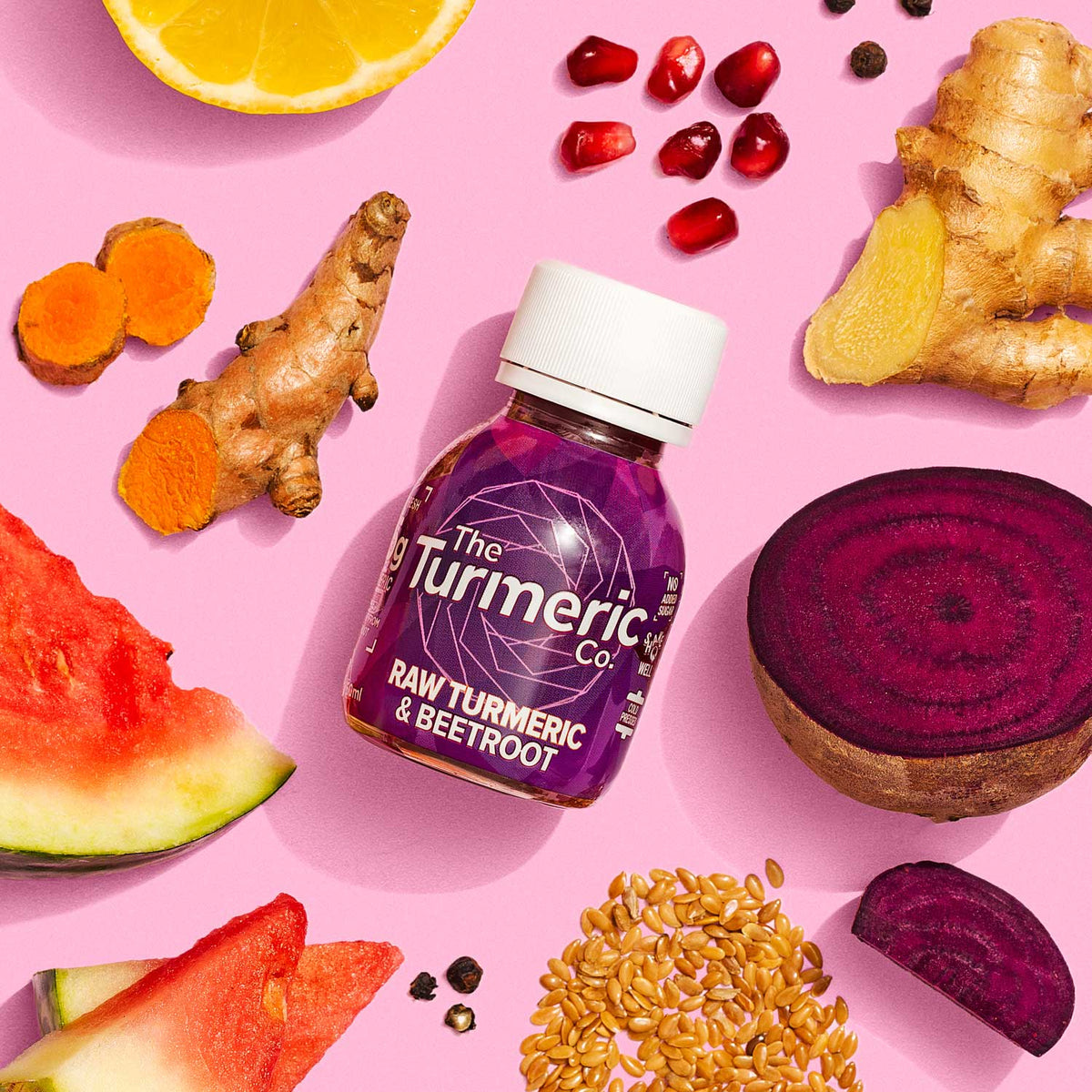The science behind turmeric and black pepper explained
Fresh turmeric has long been associated with many health benefits, because it has been used and studied by nutritionists and scientists for years too. These pretty much go out the window though, unless you’re taking your turmeric along with a surprising yet crucial accompaniment. We’re going to show you how to absorb turmeric better by improving the curcumin absorption and bioavailability using one key ingredient.
So, what is this mystical ingredient we’re talking about?
It’s called piperine, though you may know it better as black pepper.
There are plenty of turmeric and black pepper benefits to be gained when using these two spices in your diet or taking supplements. Piperine, or black pepper extract, goes hand-in-hand with turmeric, because it helps the body access all of its micronutrients. Let’s take a closer look at the science behind how these two nutritional powerhouses work, why they’re a match made in health heaven, and how you can incorporate them into your daily life.

Turmeric and piperine – a crucial combination
What is piperine?
Piperine, or black pepper extract, is so much more than just a popular seasoning. It’s the bioactive compound found in black pepper and is jam-packed full of nutritious health benefits. Piperine accounts for around 98% of the alkaloids found in black pepper.
How does piperine work?
Piperine works by increasing membrane fluidity in your gut (your intestines, to be precise), making it easier for micronutrients to be absorbed into your body. This means you could absorb more iron, zinc, and calcium from the foods you consume by adding a dash of black pepper to your meal, as well as aiding with curcumin absorption and bioavailability.
In fact, black pepper benefits curcumin absorption. Research has found that consuming just 20mg of piperine per 2g of turmeric can increase curcumin absorption, turmeric’s powerful active ingredient, by up to 2000%.
The health benefits of black pepper
The health benefits of black pepper stretch beyond its use in turmeric supplements, where it’s already incredibly useful for aiding in absorption.
Amongst other uses, piperine has been found to promote proper digestion, amongst many other purported health benefits.
The health benefits of black pepper don’t stop there. It’s reported to be a strong antioxidant because of its high concentration of piperine, helping to combat and even potentially prevent damage from free radicals that damage your cells.
Studies have also shown that black pepper benefits your gut health by increasing the good bacteria in your gut. An increase in the good bacteria in your gut has been linked to improved immune function and mood.
These are the kinds of health and wellness improvements you don’t want to miss out on, especially when they can be achieved with such simple lifestyle changes!
Turmeric and black pepper benefits
Of course, this is just the benefits of piperine. When we look at some turmeric and black pepper benefits too, you’ll be reaching for a turmeric shot in no time. As we’ve already discussed, piperine aids hugely in curcumin absorption, which is the powerful ingredient locked inside turmeric. The health benefits of turmeric are numerous, most notably its reported immune system support.
It’s incredible to think of all the ways that this spice can lead to better physical health and it has even been linked to improved mental wellbeing too.
How to take piperine with turmeric
Raise your hand if you put pepper on your food, or cook with it in your recipes? Yeah, we thought so. It’s no wonder it is referred to as the King of Spices. Let’s take a quick look at how to take your piperine both in your diet and in turmeric and black pepper supplements, and we’ll let you decide which you’d prefer.
How much piperine in a peppercorn?
It’s estimated that between 2% and 7% of black pepper is the alkaloid piperine, though this can depend on where you purchase your pepper. Say that ten times faster! The concentration can be affected by various factors before it is dried down into the peppercorns we know, and these factors include climate, growing conditions, and its place of origin.
So, how much black pepper extract do you need to get the right amount of curcumin? Well, let’s take a bit of a deep dive into the science of it all.

How much black pepper extract do you need in your diet?
One study found that consuming piperine, or black pepper extract, hindered a metabolic process known as glucuronidation. This process breaks down the molecules of the food and drinks you consume into more water-soluble components, allowing the body to expel them in your urine more easily.
Basically, glucuronidation makes it easier for the body to dissolve down and wash away molecules without them being absorbed into your body, and it makes no distinction between good components to absorb and bad ones to expel.
Weakening the process of glucuronidation is how black pepper aids in curcumin absorption and bioavailability.
However, the same study found that the human equivalent of eating the right amount of black pepper extract to hinder glucuronidation is around two tablespoons of black pepper!
When you wanted to know how to absorb turmeric better, you probably weren’t expecting that answer, right?
Supplementing curcumin with piperine in your diet and lifestyle
What we’d recommend instead is still cooking with turmeric and black pepper to get a good balance of curcumin with piperine, but also take a turmeric and black pepper supplement. This means you don’t need a spoonful or two of pepper to still get its goodness, as you can season your food to your taste without fear of overload! Don’t worry, we’ve got plenty of turmeric recipe inspiration for you to try.
For turmeric and black pepper supplements, we’d of course recommend our super convenient shots that contain both 35g of powerful raw turmeric root extract and an added dose of piperine to give you all the ingredients you need in one convenient bottle. Take a look at the range now.

The Hal Robson-Kanu Guide To Fitness & Nutrition
Gain exclusive insight into habits that will make every day a healthy and fulfilling one.













